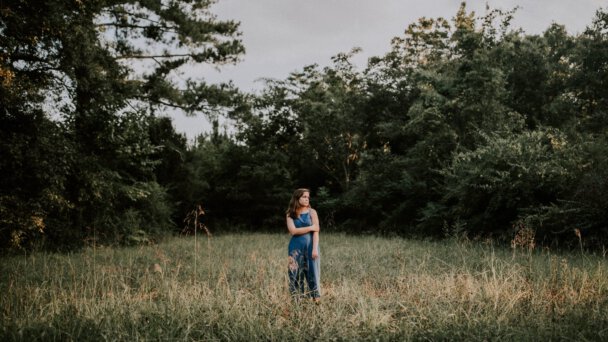The Myth of Victimless Crimes
As missionaries who live in community with each other, good team bonding is crucial, and few things are more fun to bond over than a good movie. I always love having a great conversation after the movie, or, equally likely, during it—only to enhance the experience, of course. My teammates were in for a particular treat when they had the privilege of watching Aladdin with me; they even got to hear most of the movie over my commentary!
While I was doubtless immersed in a “Whole New World” during the mandated musical numbers, I couldn’t help but break from my trance intermittently and mull over the moral of the story, and of course externally process all of my thoughts to my patient teammates. This was for one key reason: the movie gave Aladdin lots of time to hash out a moral compass. For the uninitiated, Aladdin is a small-time thief with a heart of gold, stealing food for himself and his monkey sidekick just to put food on the table. He rationalizes his actions by saying he has no other option, winning the sympathies of many viewers. However, we see as the movie progresses that there’s a deeper moral issue here, particularly when Jasmine enters the picture. When he meets Princess Jasmine, he’s convinced that he has to lie in order to win her over, again telling himself that he has no other option. He has to masquerade as a far-away, extravagant prince (with gifted choreographical talent), resolving to show his true identity one day. To quiet his conscience, he tells himself that it’s a victimless crime; after all… it’s not hurting anyone, right?
This question is more relevant than ever: “If I’m not hurting anyone, why is it wrong? Is there even such a thing as a victimless crime?” Our culture has made a habit of questioning the very nature of right and wrong, and this is a battle line that is frequently drawn to express such doubt.
So, our central question…can there be victimless crimes?
I have a story that will work towards our answer.
A friend of mine opened up to me one day about his addiction to pornography. Before all the intense emotions he had on his heart was an overwhelming sense of relief he felt that he could finally talk to somebody about it. We sat down, and he opened up to me about the long and difficult battle he had with this addiction, which seemed to have an iron grip over him for years and years. He first turned to porn because he, like so many other people, thought that there was nothing wrong with it; after all, it didn’t hurt anybody, right? It seemed like a harmless way to relieve stress. Nobody was directly affected by it except for him. Then, the days, weeks, and months went by and he noticed that something was off. In something he turned to for stress relief, he’d been more anxious than before. In something that was supposed to make him feel more secure as a man, he’d never been less at ease about his masculinity. He was no longer able to have a normal conversation with a woman because he couldn’t help but see her as a sexual object, even against his will. Porn had re-wired his brain to do that; even though there were no ostensible “victims” in this scenario, he was still objectifying the women on the screen and teaching himself to do the same to the women in his life. On top of this, his relationship with his family suffered; because porn was teaching him to value the people around him only by what they could do for him, he was unequipped to make sacrifices for the people who needed him most. He got short and disrespectful with his family when even the most minor things were asked of him. After taking a long look in the mirror at himself, he knew one thing for certain: he wasn’t proud of the person looking back at him.
The story makes the answer to our question very clear: there are no victimless crimes. We can try and find situations that we know are wrong and try to justify them on the grounds of “not having a victim” all we want, but this rabbit hole will always lead us to the same place, and it’s much scarier than Wonderland. While not every wrong action has a direct and immediate victim, we ought to draw our line a different way. Instead of judging an action’s morality by the number of people impacted, we instead want to judge an action by its intrinsic moral value. This means that acts of moral character are either right or wrong by their very nature. An action that is in line with the will of God, who is Goodness Himself, is morally good, even when (and especially when in some cases) nobody is watching. Conversely, an action is morally evil when it is contrary to God’s will, even when nobody’s watching. We will always have to reckon with God’s will first, regardless of the people impacted by our actions.
Another important thing to note is the effect that sin has on the soul. Sin, whether or not it only seems to affect the sinner, will always have external consequences. Why is this? This is because sin, being inherently contrary to God’s will, darkens our will and predisposes us towards selfishness. It tells a lie, over and over again: that we don’t really need God and are better off left to our own devices. The first “victimless crime” was in the Garden of Eden; the serpent came to Adam and Eve and used exactly that defense. “C’mon, just eat that little fruit! It’ll be fine, man! Nobody will directly suffer from this, so what’s the harm? A snack never killed anybody! (Not a direct quote)” We saw the “fruits” of that decision; much worse than bad puns, this choice from Adam and Eve tainted mankind to this day with the stain of original sin. Adam and Eve, after being told directly by God that it was not His will, went ahead and betrayed Him. After doing this, they tried to hide from God; not only from the truth by convincing themselves that it wasn’t hurting anybody, but by trying to physically hide in a cave where they thought God couldn’t see them. Whenever we sin, we are doing this; we’re trying to hide from God. All of this goes against the central truth: you can’t hide from God. Because sin can never, ever be good, it will always be against God’s will, and it will only make us more likely to keep committing worse and worse sins. It will turn us into a version of ourselves that we don’t want to be, and that will always affect other people. Someone will be hurt by it, eventually–even if it’s just you in the end. You’re somebody, and you deserve better.
The second act of my friend’s story makes for a fitting conclusion. After opening up to me and standing face-to-face with his problem, he’s made tremendous strides in breaking free of his addiction. He has started to believe in himself like never before. He only got to where he is because he accepted the truth. He decided he was done trying to hide behind a loose, self-justifying moral standard and start holding himself to the high bar that he deserved. With his acceptance of the truth has come a newfound sense of peace in God’s ability to mercifully lead him towards the greatness for which he was made. He realizes that the Lord gives him a yoke that is easy, and a burden that is light; he need only put his full trust in Him and go forward.
I know that any teaching about sin can easily sound like a stern rebuke and can be hard to take in. This is not the case here. The truth will never entrap us or set us up to fail; it will only free us and give us hope. A clear standard of right and wrong will only show us that God flatters us with a high bar and dares us to meet it. Would God point us to a place He could not lead us? A low bar will give us nothing more than temporary comfort…“But you were not made for comfort. You were made for greatness” Every person reading this blog is capable of living a magnanimous and holy life. No matter where you are now, no matter what sins you feel like you just can’t escape, you have the power to break free. God, who loves you as His beloved child, will bless your efforts and lead you towards the greatness He always had in mind for you! Go on, and set those high standards for yourself; you deserve them nothing but the best!


